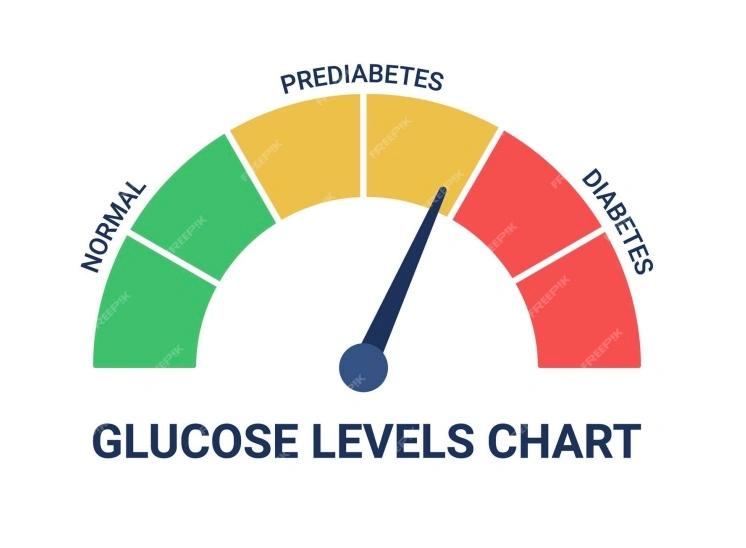Eating a healthy diet is important in managing diabetes and reducing the risk of diabetes complications. That said, some foods are better than others when it comes to preventing spikes in blood sugar and maintaining a steady level. So, what foods should you avoid if you have diabetes? Let’s take a look at some foods to stay away from.
Why is a healthy diet important for diabetics?
For diabetics, eating a healthy diet is vital to their wellness and reducing risk factors such as high blood pressure and unhealthy cholesterol levels. Eating the right foods can help to stabilise blood sugar levels and reduce insulin resistance, making it easier for diabetics to manage their condition. Additionally, incorporating healthy eating habits as part of a lifestyle that includes physical activity and weight loss can also reduce the risk of developing type 2 diabetes or prediabetes in those at risk.
Healthy eating involves consuming meals that contain a balance of proteins, carbohydrates, fibre and heart-healthy fats. Fruits and vegetables should be part of every meal, whole grains are great sources of fibre and lean proteins are key as they will keep you fuller longer, while offering nutrition without all of the calories.
A meal plan and the right portion sizes are important steps to take when making healthy food choices. Knowing how different food ingredients can affect your blood sugar and insulin levels can be one of the most powerful tools in helping you live a healthy and balanced life with diabetes. Work with your healthcare team or dietitian to create a meal plan that fits into your lifestyle and don’t forget to be mindful of portion sizes, as overeating may have unexpected adverse effects on your blood sugar levels. With attentive meal planning, diabetic individuals have the choice to make nutritious meal selections without feeling limited by their condition.
What are some foods that should be avoided or eaten in moderation by people with diabetes?
Sugary Drinks
For those with diabetes, sugary drinks and fruit juices can cause blood sugar levels to spike, so it’s best to avoid them. Sugary drinks, such as full fat soft drinks, energy drinks and sports drinks are loaded with added sugars that can contribute to weight gain, obesity, dental cavities and increase the risk of heart disease.
Even though they are often fortified with vitamins or minerals, many fruit juices contain little nutritional value beyond calories. In addition to spiking blood sugar levels, these beverages can also put individuals at risk for other diabetes-related complications, like nerve damage or heart problems. To stay healthy and fit in with your diabetic diet plan it is important to reach for water instead of going for sugary or fruit juice drinks whenever possible.
Sweetened breakfast cereals
Sweetened breakfast cereals are often seen as a convenient and healthy choice for breakfast, however for diabetics this might not be the best idea. Many sweetened breakfast cereals contain added sugars, which can cause spikes in blood glucose levels, something that diabetics need to carefully monitor and avoid. These types of cereals usually don’t have enough fibre or protein to help stabilise blood sugar levels. These are two important components that help diabetics manage their condition. Eating sweetened cereal is also a source of empty calories that lack important nutrition such as vitamins and minerals. Unsweetened cereals are better substitutes for those with diabetes as they are typically lower in carbohydrates and higher in fibre than their sugary counterparts.
Refined Carbs
Refined carbohydrates are a typical food in the western diet, making up a large part of our daily food intake. But for those with diabetes, refined carbs should be avoided. This is because these carbohydrates are heavily processed and lack any real nutritional value. Refined carbs also have a high glycemic index, meaning that they cause blood sugar levels to spike quickly after consumption. This can make it difficult for diabetics to regulate their glucose levels.
Refined carbs such as white bread, white rice, pasta, crackers, etc are often made from processed white flour which is rapidly converted into glucose in the body and can lead to spikes in your blood sugar levels. Fortunately, whole grain foods such as oats, quinoa and brown rice are great alternatives to white carbs as they provide complex carbohydrates which break down more slowly in the body, providing sustained energy, without the large spikes in blood sugar levels.
Full-fat dairy products
Full fat dairy products that come from cow’s milk, such as whole milk and cream are high in fat. These high-fat dairy products can be found in cheese, yoghurt, butter, ice cream and many other foods. Diabetes is a health condition defined by high blood sugar levels, which can be worsened by high-fat consumption. For this reason, it is important for diabetics to limit their full-fat dairy consumption to ensure healthy blood sugar levels.
If you have diabetes and want to still enjoy food with a creamy texture, there are low-fat alternatives such as skimmed milk, low fat sour cream or yoghurt, cottage cheese and ricotta cheese. There are also plant based options available such as almond or soy milk that provide the same creamy feel without high amounts of animal fat. Full-fat dairy can have high levels of saturated fat and cholesterol, both of which are not beneficial for diabetics as they increase the risk of high blood pressure and heart disease.
Limit starchy vegetables
Starchy vegetables are a category of carbohydrates that consists of potato, corn, parsnips and other root vegetables. All diabetics should limit their intake of these veggies due to their high glycemic index which can cause spikes in blood sugar. Cutting down on starchy vegetables helps stabilise blood sugar levels, which leads to a healthier and balanced diabetes management.
If you want to cut down on your starchy vegetable intake there are plenty of alternatives like broccoli, cauliflower, brussels sprouts and kale, which also allow for a healthy dose of vitamins and minerals. These veggies provide essential dietary fibre as well as phytochemicals that can have a beneficial effect on your health.
Processed Meats
For diabetics, avoiding processed meats can be a vital part of maintaining blood sugar levels. Processed meats such as bacon, hot dogs, sausages and salami are typically high in saturated fat, salt and preservatives that raise the glycemic index of food, making it harder for your body to process and providing a blood sugar spike. Eating processed meats can also increase your risk of obesity, heart disease and stroke – all factors that could severely hinder your management of diabetes.
While you may have to give up some convenience when avoiding processed meats, you’ll still have plenty of delicious options available. Try incorporating lean proteins like fish and chicken into your diet and a variety of colourful fruits and vegetables for nutrient-dense meals that will uphold a healthy lifestyle and add health benefits without compromising on taste!
Trans Fats
Diabetics should take special care to monitor what they eat, trans fats should not be on their menus. Trans fats are man-made fats created by food scientists using vegetable oils and hydrogen gas as a way to lengthen the shelf life of processed foods. However, because they are man-made, our bodies don’t know how to digest or process these types of fats. They can increase levels of bad cholesterol (LDL) in the bloodstream while lowering good cholesterol (HDL). This makes them especially dangerous for diabetics who are already at an increased risk for heart-related health issues.
Trans fats can be found in processed foods, such as crackers, peanut butter, margarine, cookies and commercial baked goods as well as fried foods like french fries, onion rings and doughnuts. It’s important to read labels carefully to avoid trans fat — look out for “partially hydrogenated oils” on food labels.
Fortunately, there are much healthier alternatives available for trans fats including olive oil or avocado oil when cooking at home. Fish like salmon, sardines and mackerel have omega-3 fatty acids which can improve diabetes control by improving the linings of our artery walls. Nuts like almonds are an excellent source of healthy fats as well and monounsaturated fats found in avocados and olives can help keep cholesterol levels healthy, while still providing essential nutrition.
Dried fruit
As diabetics know, controlling blood sugar levels can be a challenge. While snacking on dried fruit may seem like a healthy alternative to boiled sweets or other sugary foods, the truth is that the sugar content of dried fruits can cause your blood sugar to rise dramatically. Dried fruit is dehydrated, which concentrates the sugars in each serving and causes blood sugar levels to soar more quickly than when consuming fresh fruit. Additionally, most dried fruit contains added ingredients such as corn starch and even artificial sweeteners that could further affect blood sugar levels. So while fresh fruit may be okay for most diabetics in moderation, it’s best to avoid snacking on dried fruits if you have diabetes.
Alcohol
For those living with diabetes, it’s very important to know the risks associated with alcohol consumption. Diabetes can impair your body’s ability to control its blood sugar levels and alcohol can hurt this process. It is recommended that diabetics drink alcohol in moderation, if at all. Overindulging in alcohol can cause a sudden drop in blood sugar levels – even hours after drinking – leading to potentially serious symptoms such as confusion, fatigue and even coma. Additionally, alcoholic beverages are often high in calories and carbohydrates yet contain few vitamins or minerals and can be damaging to diabetic health if consumed regularly. With so many potential problems associated with drinking alcohol, diabetics should avoid alcoholic drinks altogether.
Drinking alcohol can interfere with diabetes medications as well as cause dehydration which could lead to low blood sugar levels if you don’t monitor them carefully enough! If you do choose to consume alcohol, do so sparingly and monitor your levels closely afterwards.
Eating the right food is an essential part of managing diabetes so it’s important to be aware of what type of food might cause problems for those living with this condition. By avoiding sugary drinks, refined carbs, processed meats, trans fats and alcohol altogether patients will be able to keep their blood glucose levels stable throughout the day leading to improved overall health outcomes!
Medical Disclaimer
NowPatient has taken all reasonable steps to ensure that all material is factually accurate, complete, and current. However, the knowledge and experience of a qualified healthcare professional should always be sought after instead of using the information on this page. Before taking any drug, you should always speak to your doctor or another qualified healthcare provider.
The information provided here about medications is subject to change and is not meant to include all uses, precautions, warnings, directions, drug interactions, allergic reactions, or negative effects. The absence of warnings or other information for a particular medication does not imply that the medication or medication combination is appropriate for all patients or for all possible purposes.










